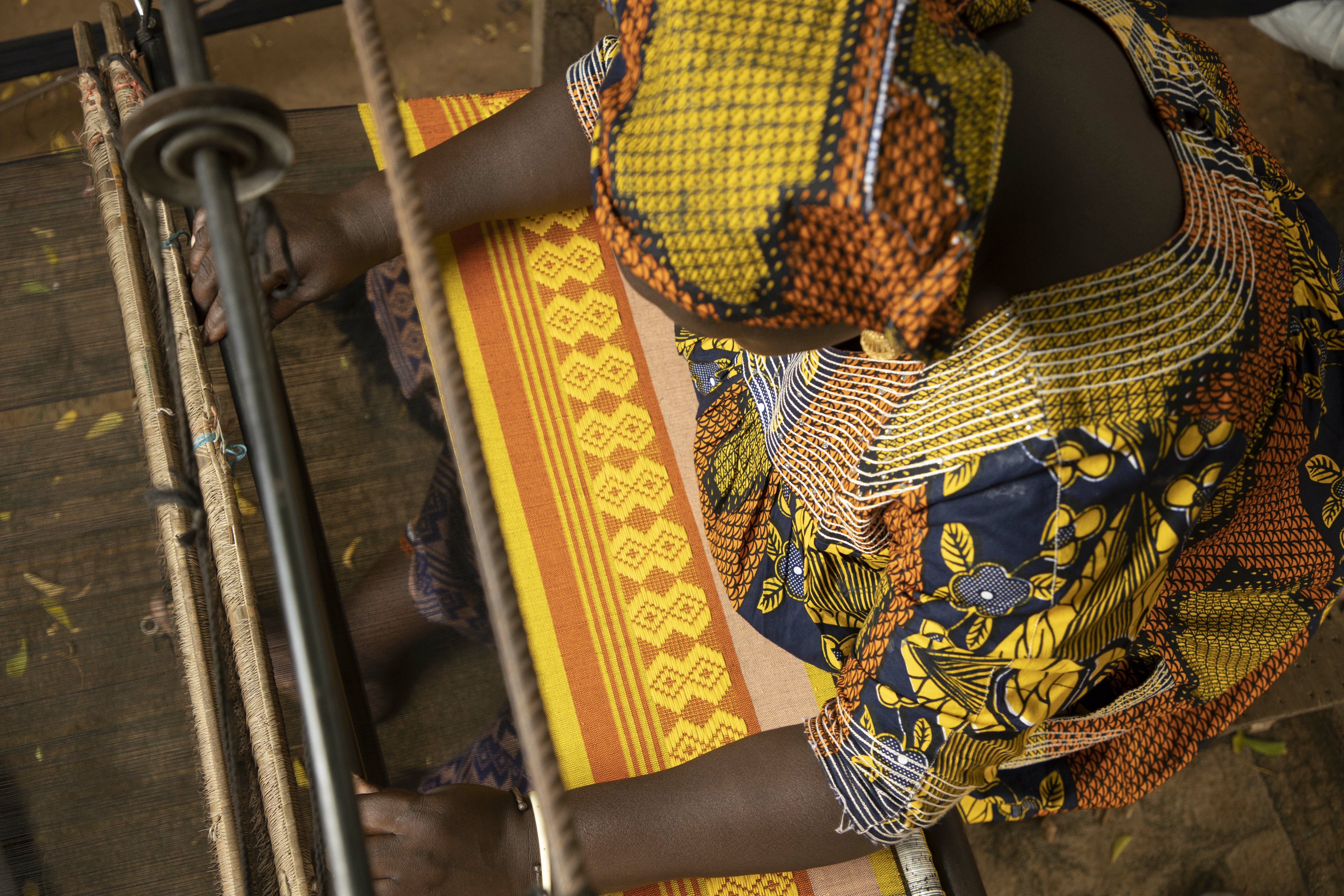DDH is an initiative involved in the Senegalese textile industry's value chain, which includes the promotion of Senegalese cotton, the processing method, as well as the provision of finished products for the local and international market. The centre also supports the promotion of knowledge and training in the skilled crafts and fashion sectors. 'DDH's goal is to reform, structure and professionalise the Senegalese textile and design industry, making it more dynamic and thus more competitive on the world market,' Nzinga Sy explained.
It comprises several components, including a design school, a production site for supporting young designers, a mobile training programme which will offer services in the whole of Senegal and the subregion, as well as a digital platform which will raise the profile of the textile and cotton industries' main stakeholders.
Nzinga Sy's vision is to train the African designers of tomorrow, structure Senegal's design ecosystem and support women and young people through innovative services and a well-founded programme for accompanying and creating jobs. She also hopes to improve Senegal's global positioning in the design sector and upgrade and export Senegalese know-how.
With the support of Invest for Jobs, the DDH plans to train around 300 young people and create 200 new jobs by 2024. To this end, Invest for Jobs has supported the centre by providing materials such as sewing and embroidery machines, with public relations work in conjunction with the opening of the Dakar Design Hub and with developing curricula for training courses and workshops.
 © Dakar Design Hub
© Dakar Design Hub